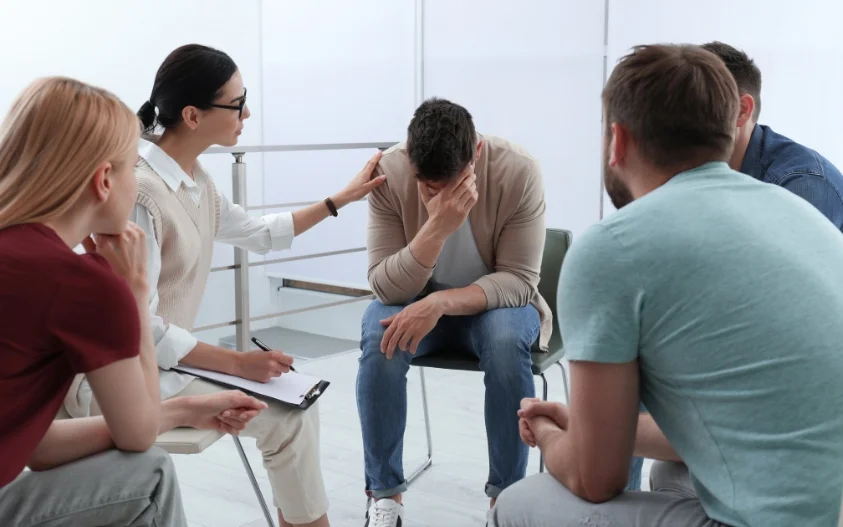24/7 Helpline:
(866) 899-221924/7 Helpline:
(866) 899-2219
Learn more about Group Therapy centers in Bullock County
Group Therapy in Other Counties

Other Insurance Options

BHS | Behavioral Health Systems

Multiplan

Medical Mutual of Ohio

BlueCross

Sliding scale payment assistance

Health Partners

Covered California

Molina Healthcare

GEHA

Magellan

Providence

Kaiser Permanente

BlueShield

CareFirst

Carleon

Coventry Health Care

Self-pay options

MHNNet Behavioral Health

Access to Recovery (ATR) Voucher

Choice Care Network

Chateau Recovery
Chateau Recovery provides a safe, peaceful, and comfortable environment to practice new lifestyle ch...

Acqua Recovery
Acqua Recovery provides evidence-based residential rehab center offering an intimate sanctuary for a...

East Central Mental Health
East Central Mental Health offers programming for individuals living with disabilities in Union Spri...


















































